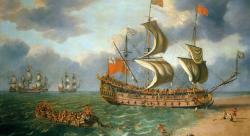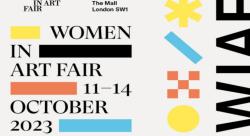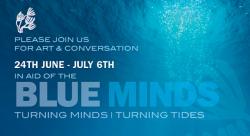There was something different about Stanley Kubrick – the poor boy from the Bronx whose every movie became an event.
After the mega-shows by their V&A rivals in South Ken – David Bowie and Pink Floyd – the upstart Design Museum in Kensington High Street has launched a new genre of exhibition with a tribute to the most British of US film-makers.
Kubrick may have been a New Yorker by birth, but he became English by choice. He obviously didn’t like to travel. Almost all his 13 major works were shot in his adopted homeland. Even the slightly disappointing late works, Full Metal Jacket and Eyes Wide Shut, were made here, the former largely in the old Beckton Gas Works doubling for Vietnam’s Hue and the latter using Commercial Road for New York.
The show, which I planned to visit for 30 minutes, kept me entranced for nearly two hours, and I hurried through. Being themed around design, there was a lot of attention to detail. It opens after entering through a multi-screen hallway of highlights, with a display of his meticulous notebooks.
A huge cabinet records his preparations for a movie about Napoleon that was never made – pipped to the post by Rod Steiger’s version. There are watercolour sketches of French army uniforms, letters to Audrey Hepburn asking her to play Josephine and a vast library of Bonapartiana. His life is laid out in 212 scenes. Deeper in, we are introduced to his early films made on a shoestring while he was on the dole in New York. And then the first major movie, the poignant Paths of Glory – his excoriating hatchet job on the hypocrisy of the French high command in the First World War. From there on, we ride the rollercoaster of an oeuvre that was remarkable for its variety: the political satires of Dr Strangelove and A Clockwork Orange, the spooky psycho-horror of The Shining, the surprisingly human reading of Nabokov’s Lolita, and the monumental mystery of 2001.
My favourite Kubrick movie, his cinematic version of Thackeray’s Barry Lyndon shows how well he understood his adopted homeland, capturing English snobbery in a way perhaps only a foreigner can have the insight to observe. The casting is surprising and brilliant, with a masterly Leonard Rossiter playing an absurd captain just the right side of farce.
Throughout this beautifully organised show are opportunities to sit and watch a scene or two, or listen to a pertinent interview through headphones. My only complaint is that I would have liked more chronology - the films come in relatively random order for no apparent reason. No matter. Like a Kubrick film, this show is an event. Don’t miss it.
Until 15 September at The Design Museum, London: 020-3862 5937, www.designmuseum.org









